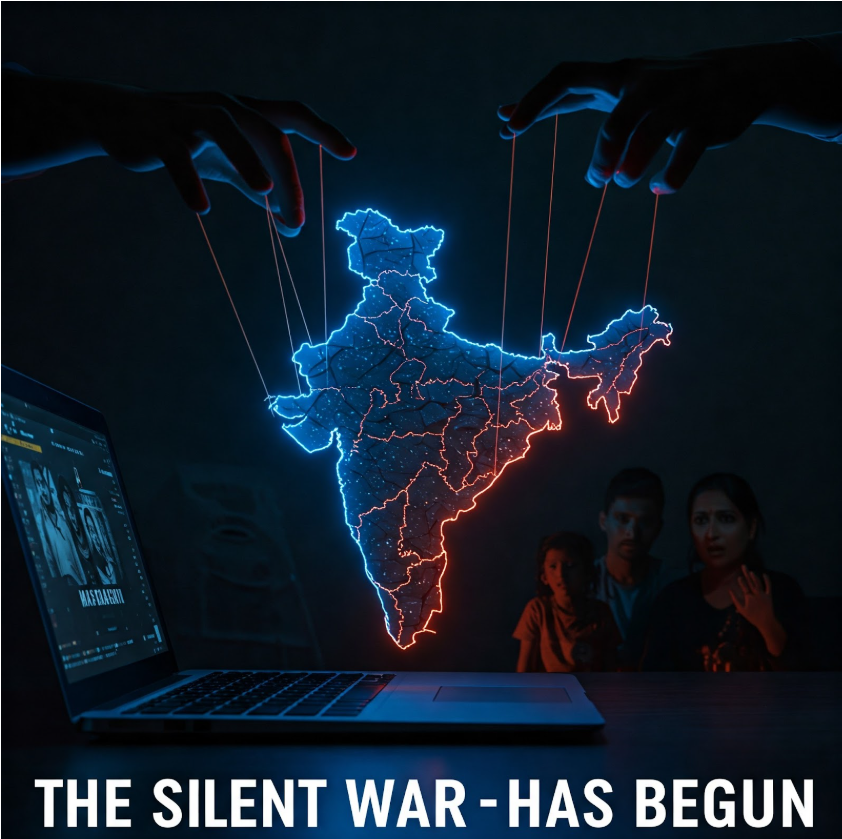The Silent War: Cybercrime and Deep Fakes Threaten India’s Soul It’s 2:44 AM, and somewhere in India, a grandmother’s savings vanish into the ether. A young entrepreneur watches her startup’s reputation crumble under a fabricated video. A soldier’s family receives a chilling call from what sounds like his voice except it’s not him. This isn’t science fiction; it’s our reality in 2025. Cybercrime and deep fakes aren’t just buzzwords anymore, they’re weapons tearing at the fabric of India’s social, economic, and national security. President Droupadi Murmu’s words ring loud and clear: these threats are no longer distant; they’re at our doorstep, and we’re running out of time to fight back. Imagine this: you’re scrolling through your phone, and a video pops up of a politician you trust, urging you to send money for a “national cause.” Except it’s not real. It’s a deep fake, so flawless you’d never suspect it. Or picture a call from your boss, demanding urgent bank details only if it’s an AI mimic, not her voice. These aren’t hypotheticals; they’re happening now. Cybercriminals have turned technology into a battlefield, and we’re all targets. In a nation racing toward digital supremacy, this is the dark underbelly we can’t ignore. Indian President Murmu, addressing Parliament in January 2025, didn’t mince words. “Digital fraud, cybercrime, and emerging technologies like deep fakes pose challenges to our social, economic, and national security,” she said. She’s right our lives are intertwined with the digital world, from UPI payments to DigiLocker. But with every step forward, the shadows grow longer. Scammers don’t need guns anymore; they wield algorithms. They don’t break into homes; they hack into minds. And the cost? Billions of rupees lost, trust shattered, and a nation left vulnerable. But here’s the spark of hope: India isn’t sitting idle. The government’s push for cybersecurity is fierce think tier-1 status in the Global Cybersecurity Index, a badge of honor earned through relentless effort. Measures like the Indian Cyber Crime Coordination Centre and toll-free helplines (1930, anyone?) are lifelines for victims. Cybersecurity isn’t just a tech buzzword here—it’s a job creator, a shield for the youth stepping into this digital warzone. Yet, the enemy evolves faster than we can build defenses. Deep fakes aren’t just videos; they’re psychological warfare, blurring truth until we doubt everything. These aren’t faceless statistics, they’re us. Our parents, our friends, our kids. Cybercrime doesn’t discriminate, and deep fakes make it personal. They steal our voices, our faces, our dignity and we’re left picking up the pieces. So, what do we do? Awareness is our first weapon knowing that a call or video might not be what it seems. The government’s e-governance push, like DigiLocker, is brilliant, but we need more. Stronger AI to fight AI. Training programs for every citizen, not just techies. A culture that questions before clicking. President Murmu’s call to action isn’t just for policymakers—it’s for you and me. This silent war won’t end with a treaty; it’ll end when we refuse to be victims. India’s future is digital, but it’s also fragile. Cybercrime and deep fakes are testing our resilience. Let’s rise, not just as a nation, but as a people—armed with knowledge, united in purpose. The shadows may be long, but our spirit is stronger. India’s future is digital, but it’s also fragile. Cybercrime and deep fakes are testing our resilience. Take control today, download the Arjuna Cyber Shield app and protect yourself from the shadows of this digital war.






